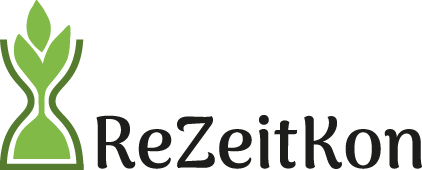Outcomes
Selected results of the follow-up survey during the corona pandemic in April 2020
The measures taken throughout Germany in the wake of the corona pandemic suggest a strong influence on our use of time and certain consumer habits. Therefore we spontaneously conducted a second survey in April 2020. Compared to the representative survey of February 2020 (see below), this follow-up survey allows us to investigate changes in time use, time wealth and sustainable consumption during corona measures. The same persons of the first wave were interviewed; however, the survey was limited to employed persons (N=963).
This time we asked what people mainly use their time for if they have additional free time in connection with the corona pandemic. The word cloud shows all answers that were mentioned at least three times. The size of the word cloud reflects the frequency of mentions. It indicates that people often use their free time for activities in the house and garden. Reading is also very high on the list. Time for children, family, sports, television/movies or hobbies was also frequently mentioned.
Click here for the exact frequency distributions.

These results may seem surprising at first glance, as the majority of those interviewed longed for more sleep and recovery during the first wave of the survey in February 2020. However, our data also show that on average people sleep 30 minutes longer. For example, the average length of sleep during the Corona pandemic has increased from around 7.5 to 8 hours (t-test significant). At the same time, the discrepancy between desired and actual sleep duration also decreased. While in February the respondents still wished to sleep 74 minutes longer, the sleep deficit during the corona pandemic fell to 45 minutes. So people seem to be tending to turn (more) well-rested towards housework and gardening.
We were also interested to see how consumption patterns have developed in terms of sustainability during the corona pandemic. Significant changes can be expected here, especially in the field of nutrition. Now that many restaurants and canteens have closed, one might expect an increase in delivery services and take-away meals. While there have been no significant changes in the use of delivery services, the consumption of take-away food has actually decreased. At the same time, we see a strong increase in the preparation of meals at home. Respondents also indicate that they eat meat slightly more often with their main meals.
Selected outcomes of the representative survey of February 2020
To explore our research questions, we conducted a representative survey in February 2020. The survey included questions on the use of time-efficient technology and practices, the experienced time wealth, sustainable consumption patterns and subjective well-being.
Among other things, we asked how people would primarily use an extra hour per day.
The word cloud shows all answers that were mentioned more than five times. The size of the respective word reflects the frequency of mentions. The word cloud paints a picture of an overtired society that first and foremost wants to rest and sleep (or chill, relax, recover or sunbathe), spend time with family, children, relationship and friends, as well as read, engage in other hobbies or do sports.
For the exact frequency distributions click here.



